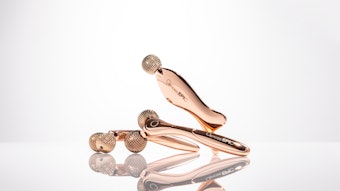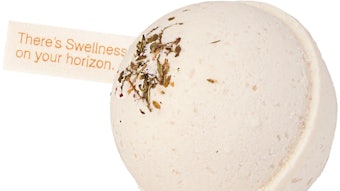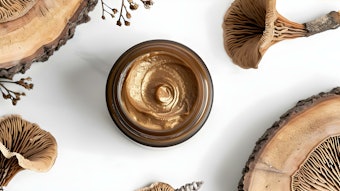In Eluv’s article “Food for Thought” in the September issue of Skin Inc. magazine, she outlines the importance of eating a healthily balanced diet, as well as what effect it has on your life and your business. Here, learn more about traditional Chinese medicine eating, tasty snacks that follow these principles, and a reading list of other resources you can seek out to learn even more.
Traditional Chinese medicine (TCM) and its food healing principles is a complex system that can bring about profound changes in the health of the entire body.
TCM is a system that treats the body holistically, its foundation laid on the principle that every organ in the body is interrelated. Therefore, the sum of all the body’s symptoms or complaints are taken into account rather than only one main symptom. For example, improving and clearing blood stagnation can improve energy, relieve pain and cramping, increase circulation, and stimulate liver qi, or energy. Moving the blood moves the qi, and the whole body benefits.
Each organ has a coordinating time of day where it is most active, and another when it is least active. TCM treatments are timed to benefit from these cycles, minimizing or enhancing energy as required. Similarly, foods can be eaten according to season, with a focus on balancing yin and yang.
A diet harmoniously tuned to your constitution is one that shifts and changes smoothly with the seasons, the time of day, your biorhythms, and your energetic, social and emotional needs. When excess occurs, moderation or decrease is the counterbalance.
TCM and its food healing principles are all about yin-yang balance, teaching that a subtle interference of energy gains momentum and that any type of stress on one area of the body can over time affect the balance and well-being of the entire body.
Emotional stress or consuming the wrong foods, or a combination of both, can have a negative effect on health. Combinations of physical stress, emotional stress and a bad diet create multilayered imbalances, often requiring radical lifestyle changes in order for the body to shift towards health again.
Many people function at a lower level of health and consider this to be normal. They may have symptoms such as fatigue, headaches, digestive issues, skin problems, allergies or a lowered immune system, yet a visit to the doctor or a series of tests may not necessarily disclose anything abnormal. From a TCM standpoint, there is an imbalance causing these symptoms. Left unchecked, this can easily manifest into something more serious.
Each person is distinctly unique in their yin-yang balance, strengths, weaknesses and propensity towards different illnesses. Some people need to move stagnated qi, and others reduce excessive qi, in order to maintain optimal health. Two people can both experience the symptom of low energy; yet one may have yin deficiency and the other yang excess.
If a person with low energy and excessive fire—yang excess—uses heat-producing stimulants or foods and beverages, such as caffeine, energy drinks, or fried and spicy foods, this will continue to overstimulate the already excess fire energy and deplete the yin. That person needs foods that nourish the yin, disperse heat and support more balanced energy.
If a person with a yin deficiency spends time in a dark environment with little exposure to sunlight, eats too many cooling or cold foods and drinks, or is exposed to external cold, this will continue to deplete yin and consume the yang energy. Sunlight, a warmer environment, warming foods, drinks, and herbs can help disperse cold and support more balanced energy.
Finding balance is like learning to dance a new dance—sometimes it’s a bit difficult at first, but after some practice, it becomes easier and much more fun. Balance is not about perfection, it’s about doing the dance of going with the flow and keeping the energy moving.
As a spa professional, your health and well-being impacts and influences your energy, and the energy you share with your clients. Giving too much depletes, as does giving insincerely. You may choose to take a moment to observe the areas in which you would benefit from greater balance. Choosing to take good care of yourself benefits everyone around you. Ultimately, it is the most important gift you can give yourself. Your health is your abundance and the gift you share with your clients.
Always seek the advice of a trained TCM practitioner who is an expert in food therapy or a nutritionist. Do not self-diagnose.
Quick and healthy snacks
- Apple slices drizzled with tahini or dipped in cashew or almond butter.
- Avocado sliced in half, drizzled with honey, and powdered with cinnamon, cardamom or other sweet spice.
- Avocado sliced in half, then drizzled with coconut oil, lemon juice, salt and fresh cracked pepper.
- Hummus with fresh celery, baby carrots, fennel or other raw veggies for dipping.
- Lightly steamed asparagus and fresh, thinly sliced cucumber tossed in coconut oil and chia seeds, then wrapped in seaweed.
- Sardines in spring water, with a little added sea salt, fresh cracked pepper and a splash of fresh lemon or lime juice. Sardines are considered a neutral food beneficial for the stomach.
Reading list
- Asian Botanicals (Allured Publishing, 2003) by Evelyn Su
- Traditional Chinese Medicine: Esthetician’s Guide (Allured Publishing, 2008) by Michelle O’Shaughnessy, DOM
- Nutrition: The Healthy Aging Solution (Pat Lam, 2008) by Pat Lam
- The Web That Has No Weaver: Understanding Chinese Medicine (McGraw-Hill, 2000) by Ted Kaptchuk
- Dragon Rises, Red Bird Flies: Psychology, Energy and Chinese Medicine (Station Hill Press, 1991) by Leo Hammer
- Generative Energy: Restoring Wholeness to Life (Raymond Peat, PhD) by Raymond Peat PhD
- Helping Ourselves: A Guide to Chinese Food Energetics (Meridian Press, 1994) by Daverick Leggett
- Chinese System Of Food Cures: Prevention & Remedies (Sterling, 1986) by Henry C. Lu
- The 5 Laws for Healthy Living (Thorsons, 1998) by Angela Hicks
- Chinese Traditional Herbal Medicine, Vol 1 and 2 (Lotus Press, 1998) by Michael and Lesley Tierra
- Planetary Herbology (Lotus Press, 1988) by Michael Tierra
- Detoxify or Die (Prestige Pubs, 2002) by Sherry A. Rogers










